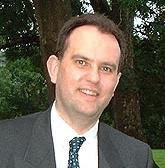The Copenhagen Consensus initiative, which includes five Nobel laureates in its panel, has declared that tackling malnutrition should be the main priority in the world.
The Times-Online news website has reported that the provision of nutritional supplements, such as vitamin A and zinc to babies and children in the developing countries is most important in order to prevent totally avoidable deficiencies that are known to affect hundreds of millions of children. They comment that this is the 'most cost-effective way of making the world a better place.'
The aim of the report is to prioritise solutions to the world’s many problems according to their costs and benefits, and the most important priorities it concludes is to improve diet. On the other hand, efforts to reduce global warming through reductions in greenhouse gases, were rated at the bottom of the league table. The economists considered the costs of effectively tackling climate change too high with limited overall benefit, while research into renewable energy and new low-carbon technologies, such as solar and nuclear fusion power, was ranked 14th in important.
See: Peter Henderson, Forget Climate Change, we should spend on nutrition.' Date 30/05/08
